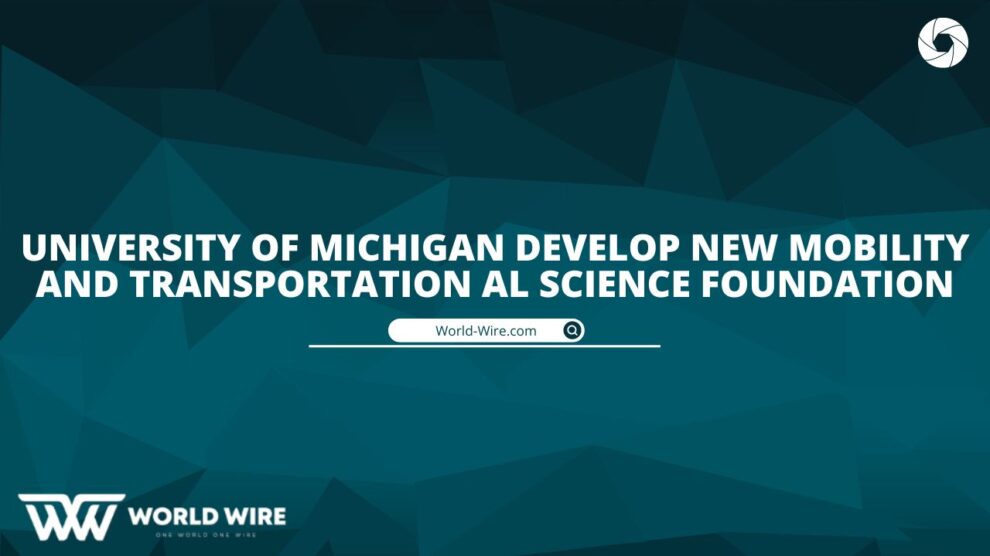Researchers, academics, and organizations across public and private sectors are working with Ford Motor Company on long-term strategies to deal with the growing transportation and personal mobility challenges facing large and increasingly congested metropolitan areas.
On Wednesday and Thursday, June 11-12, University of Michigan (U-M) hosts the 2008 Sustainable Mobility Summit, which coincides with the release of Ford’s ninth annual Sustainability Report. A gathering on emerging trends in new mobility is the first time the University of Michigan has hosted one. Cischke is set to deliver the keynote address at the Summit on Wednesday, along with Bill Ford, Ford’s executive chairman.
Ford’s sustainability blueprint includes developing mobility solutions for large urban centers. In addition to its sustainability strategy, which emphasizes short-, mid- and long-term product actions to increase fuel economy and reduce carbon emissions, Ford’s mobility initiative today takes a broader perspective on how transportation will look in the near future. Ford and U-M developed a viable and affordable alternative to current transportation modes by studying urban mobility trends in regions with serious congestion and pollution problems.
The company must have the courage to face the long-term challenges we know await us as a business even as it grapples with the near-term reality of record oil prices and tough economic conditions. As a society, we will have to understand how personal mobility will evolve in a future where rapid population growth will cause more congestion and emissions than we are able to sustain.
Ford is developing Ford Urban Mobility Networks in partnership with U-M’s Sustainable Mobility and Accessibility Research and Transformation (SMART) program as well as local-market partners. In urban areas where population growth is beginning to affect access to affordable personal mobility, the new program will provide individuals with efficient access to a variety of transportation options such as buses, trains, taxis, car-share fleets, mopeds and bicycles. Different modes of transportation and services may be accessed at the same time through a transfer point or hub.
In addition to providing commuters with information about entertainment, recreation, dining, banking, commerce, community services and more, hubs can be simple places where two modes of transportation meet or elaborate places where many modes of transportation meet. Using information technology, the hub network is enhanced by real-time travel and schedule information via kiosks or mobile phones. Connected hubs throughout a city provide commuters with safe, convenient, and affordable transportation options.
In addition to providing alternatives to vehicle ownership that reduce vehicle miles and carbon emissions and increase the use of public transportation and non-motorized options, the first cities to pilot Ford Urban Mobility Networks are Cape Town, South Africa, and Chennai and Bangalore, India.
Experts predict that by 2015, two-thirds of the world’s population will live in cities, and 35 cities will be over ten million in size. It is expected that traffic congestion will increase and personal mobility will be restricted in these megacities, as well as in smaller cities that are growing rapidly worldwide. There are already infrastructure stresses, congestion and pollution in many cities due to rising birth rates and rural-to-urban migration patterns.
With our partnership with urban mobility networks, we hope to introduce a new definition of personal mobility in the 21st century. Ford redefined personal mobility in the 20th century.
Ford’s sustainability, environment and safety engineering office has been collaborating with the University of Michigan to drive Ford’s urban mobility initiatives. In addition to connecting businesses and municipalities related to sustainable transportation, they are also connecting academic institutions, transportation providers, information technology firms, and other entities that are increasingly focusing on meeting the transportation needs of tomorrow’s urban areas.
Several cities are already reducing congestion and carbon emissions caused by rapid population growth by imposing gas taxes on vehicle use and restricting traffic in city centers. For Ford and its partners, the fact that some day commuters might have to leave their own cars at home or pay a penalty for driving into overcrowded cities has become apparent.
Our core business is mobility, so we will be involved in helping major cities solve future transportation challenges, Cischke said. As a result of our expertise in vehicle engineering, fleet management, logistics, and business planning, we can help our stakeholders solve their mobility challenges in a way that will generate value for them.
As part of U-M’s conference on sustainable urban mobility, Cichtke will discuss Ford Urban Mobility Networks. Through Ford’s partnership with U-M, Ford identified emerging new mobility approaches and initial local partners to test Ford Urban Mobility Networks in test markets. The lessons learned from these test cities will be applied to other urban areas around the world, Ford says.
According to Susan Zielinski, managing director, SMART at U-M, automakers have a great opportunity to participate and lead here.
In order for us to develop and apply innovative solutions in our increasingly urbanized world, we need to work together across business sectors involved in the new mobility industry, alongside governments, academia, and community stakeholders. These collaborations will alleviate some of the congestion and pollution, while also creating new markets in the new mobility economy.
About Ford Motor Company
Dearborn, Mich.-based Ford Motor Company manufactures or distributes cars in 200 countries on six continents, making it the world’s largest automotive manufacturer. The company employs more than 228,000 people and operates 90 plants worldwide. It offers financial services through Ford Motor Credit Company through its core and affiliated automotive brands, including Ford, Lincoln, Mercury, Volvo and Mazda.







Add Comment